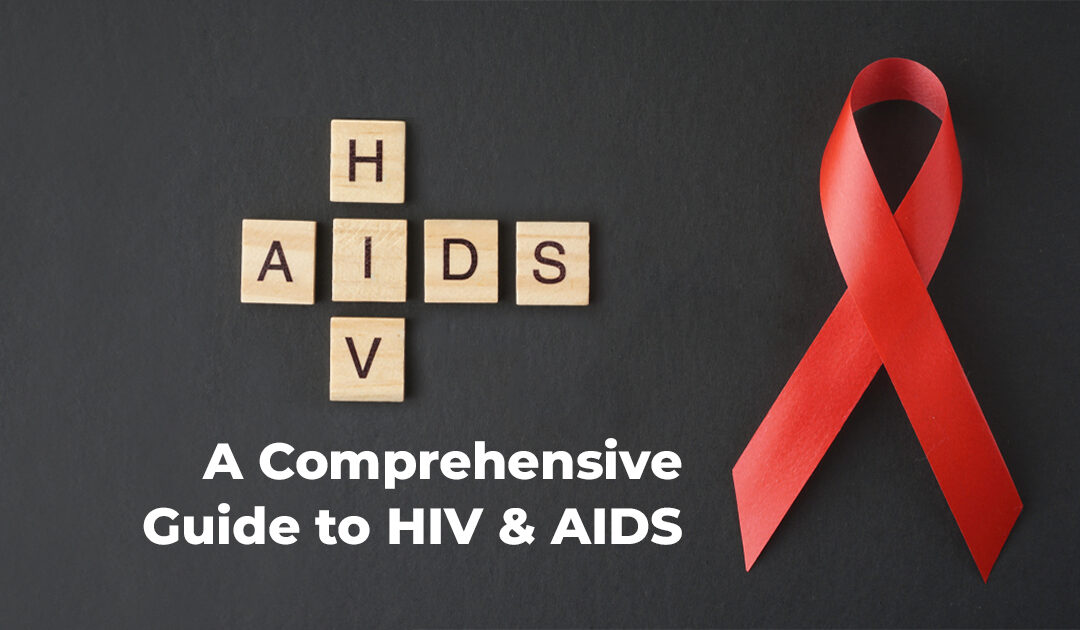What exactly is HIV?
The term “HIV” stands for human immunodeficiency virus. HIV, a retrovirus, infects and kills immune cells, making it difficult to combat other infections. When HIV significantly weakens your immune system, you can develop acquired immunodeficiency syndrome (AIDS).
And, what exactly is AIDS?
AIDS is the most severe stage of an HIV infection. People with AIDS have extremely low levels of specific white blood cells and severely weakened immune systems. They may have additional ailments that suggest they have advanced to AIDS. Without therapy, HIV infections lead to AIDS within 10 years. Not everyone with HIV develops AIDS as a result of medication that delays the virus’s progression. However, without therapy, nearly all HIV-positive people will develop AIDS. HIV infection can induce AIDS symptoms, but many of them are caused by infections that take advantage of your compromised immune system.
What’s the difference between HIV and AIDS?
The distinction between HIV and AIDS is that HIV is a virus that impairs the immune system. AIDS is a disorder that can occur as a result of HIV infection when your immune system is significantly compromised. You cannot get AIDS unless you are infected with HIV.
What are some of the symptoms of HIV?
You can have HIV without exhibiting any symptoms. This is why it is critical to get tested even if you do not feel ill.
When you first become HIV positive, you may have flu-like symptoms. These might include:
- Fever.
- Chills.
- Fatigue.
- Sore throat.
- Muscle aches.
- Night sweats.
- Rash.
- Swollen lymph nodes.
- Mouth sores.
What are the different stages of HIV?
HIV has three stages:
-
Stage 1: Acute HIV.
Some patients develop flu-like symptoms a month or two after being infected with HIV. These symptoms usually subside within a week to a month.
-
Stage 2: Chronic stage and/or clinical latency.
After the acute stage, HIV can be present for many years without causing symptoms. Even if you feel fine, you can still transmit HIV to others.
-
Stage 3: AIDS.
AIDS is the most severe stage of HIV infection. At this point, HIV has severely damaged your immune system, making opportunistic infections considerably more likely to cause illness. If you have AIDS, you are more prone to get certain cancers.
How is the HIV virus transmitted?
HIV can be transmitted by a person’s blood, semen, vaginal fluids, breast milk, or rectal fluids. HIV can infect and spread among people of all sexes and sexual orientations.
The virus can enter the body through the mouth, anus, penis, vagina, or broken skin. It won’t pass through your skin unless you have a cut or wound. HIV-positive pregnant women can pass it on to their unborn children. The only way to determine whether you have HIV is by taking an HIV test. There are three types of HIV tests. They are:
- Antigen tests
- Antibody tests
- Nucleic acid tests
There are also at-home tests to test for the HIV virus. Some are fast tests in which you rub your gums with a stick with a soft, flexible tip. To receive your results, you place the stick in a tube filled with a particular solution. The results appear within 15 to 20 minutes.
Other at-home tests involve pricking your finger with a tiny needle. You place a drop of blood on a card and ship the test kit to a lab to get your results. If your at-home test results are positive, you should contact your healthcare practitioner for further testing to confirm your findings.
HIV is a virus that damages the immune system, making it difficult for the body to combat illnesses. If left untreated, HIV can develop into AIDS, the most severe stage of the virus. There is presently no cure for HIV, but with good medical care, persons with the virus can live long and healthy lives. Preventive measures, such as safe sex practices and frequent testing, are critical in reducing HIV spread. It is critical to remember that HIV is not spread through casual contact, and that HIV patients deserve compassion and understanding.

